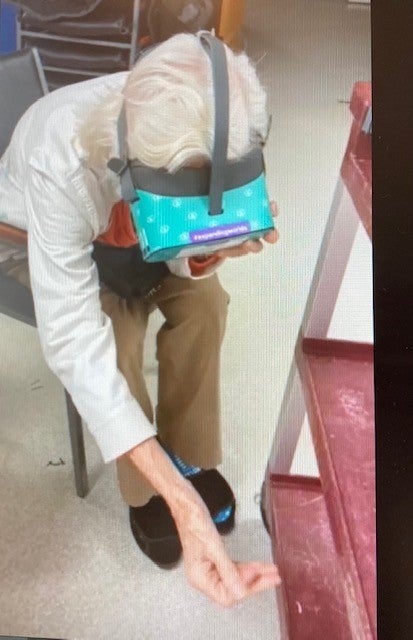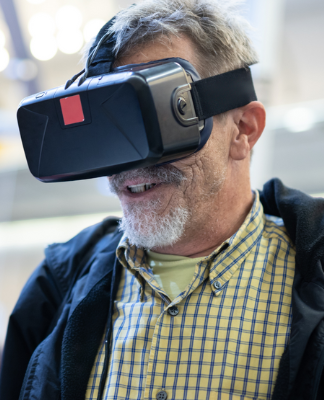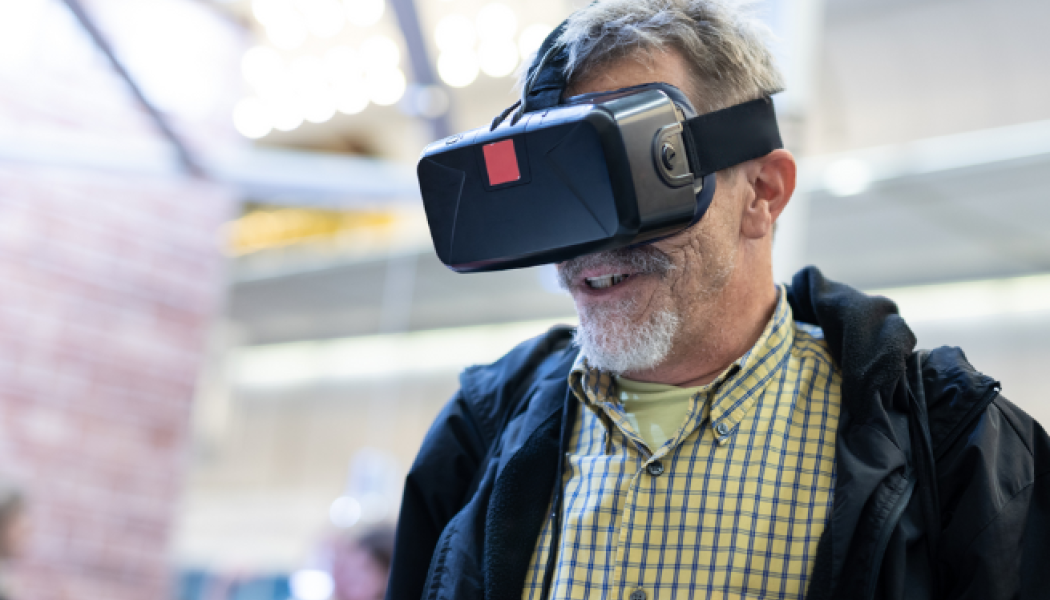Cindy is 86, grew up in Kelowna, and over the years has enjoyed all kinds of outdoor activities like mountain climbing, water sports, and horseback riding. The many things that still bring her comfort and joy are children, music, gardens and, most of all, animals.
Cindy lives in a long-term care facility and, like many, faced the challenges of social isolation during the COVID-19 pandemic.
To combat this, the seniors care team at Interior Health has introduced a new tool that can be personalized in a meaningful way for older adults like Cindy – virtual reality. By wearing virtual reality goggles, seniors in our long-term care homes can view familiar and joyful content, which can be beneficial to their physical, mental and emotional health. It also helps health-care teams as they work to match care needs in a person-centred way.
Cindy now has the opportunity to immerse herself virtually in activities that she was previously accustomed to. Because she loves animals, the staff provides content for her that feed that love, in this case a herd of horses with some roaming toward her, close enough to feed.

The familiarity of the virtual reality content is stimulating and invites Cindy to engage with what she’s viewing by physically reaching out as if she’s feeding one of the horses some hay. Her body language transforms in a positive and dynamic way as she does this, as she’s stimulated physically, mentally and emotionally.
“Our minds are complex and can be stimulated by such positive and meaningful interactions,” says Joanna Harrison, IH executive director of Seniors Specialized Care. “Technology will permeate our health system in ways we have never experienced before. This is one example of embracing the era of digital health.”
Having the technology is one thing. Measuring if it has a positive impact on seniors’ quality of life and overall health is another. So, caregivers will be watching those who use virtual reality for positive signs in their emotional well-being and behaviour. These might include increased eye contact, more appetite and interest in food, participating in more recreational programs, a reduction in falls, and whether they proactively engage in self-care, such as requesting to get their hair done.
Could this be the future of one aspect of seniors’ care? So far, health-care teams have seen many benefits and also have witnessed acceptance of technological advances.
“More often than not we limit options for others based on our preconceived perceptions, like older adults can’t use technology, let alone virtual reality,” adds Joanna. “It’s intentional person-centred care, and a team approach is best.”















